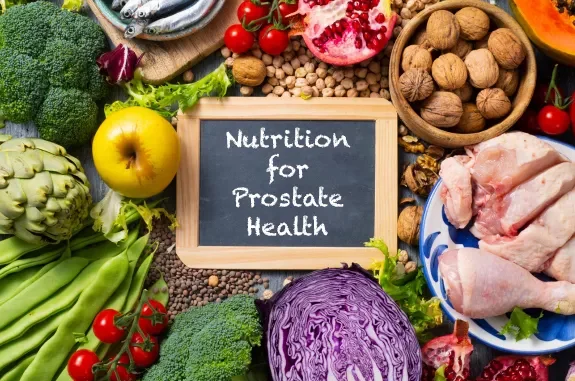
Prostate cancer is a significant health concern for men, particularly those over 50years. While age, genetics, and race are established risk factors, diet plays a crucial role in either increasing or decreasing the likelihood of developing this disease...CONTINUE READING THE FULL ARTICLES HERE
Certain foods, when consumed excessively, contribute to inflammation, hormonal imbalances, and oxidative stress all of which can fuel prostate cancer cell growth.
1. Red and Processed Meats: Regular consumption of red meat (beef, pork, lamb), especially when grilled or charred, elevates prostate cancer risk.
These meats are high in saturated fats and contain heterocyclic amines (HCAs), formed during high-temperature cooking. Processed meats (sausages, bacon, hot dogs) contain nitrates and preservatives, also linked to cancer.
2. High-Fat Dairy: Whole milk, cheese, and butter, rich in animal fat, increase insulin-like growth factor (IGF-1) levels. IGF-1 can stimulate prostate cancer cell growth. High daily dairy consumption may increase vulnerability.
3. Fried and Junk Foods: Deep-fried foods and fast foods contain trans fats and hydrogenated oils, promoting inflammation and oxidative stress. This weakens the immune system’s ability to combat abnormal cell growth.
4. Sugary Foods and Drinks: High sugar intake leads to obesity and insulin resistance, increasing cancer risk. Sugary drinks, sweets, and pastries feed harmful cells and contribute to chronic inflammation.
5. Excessive Alcohol: Heavy alcohol consumption disrupts hormone levels and impairs the liver’s detoxification process, indirectly increasing cancer risk, including prostate cancer.
6.Promoting Prostate Health Through Diet:Prostate cancer is, to some extent, preventable through a healthy lifestyle. Limiting the consumption of the foods listed above and adopting a diet rich in vegetables, fruits, whole grains, and healthy fats can significantly protect prostate health. Awareness and moderation are key to longevity.
Kindly Follow Our WhatsApp Channel
Disclaimer: This content including advice provides generic information only. It is in no way a substitute for a qualified medical opinion. Always consult a specialist or your own doctor for more information. NEWSHOUR does not claim responsibility for this information.
